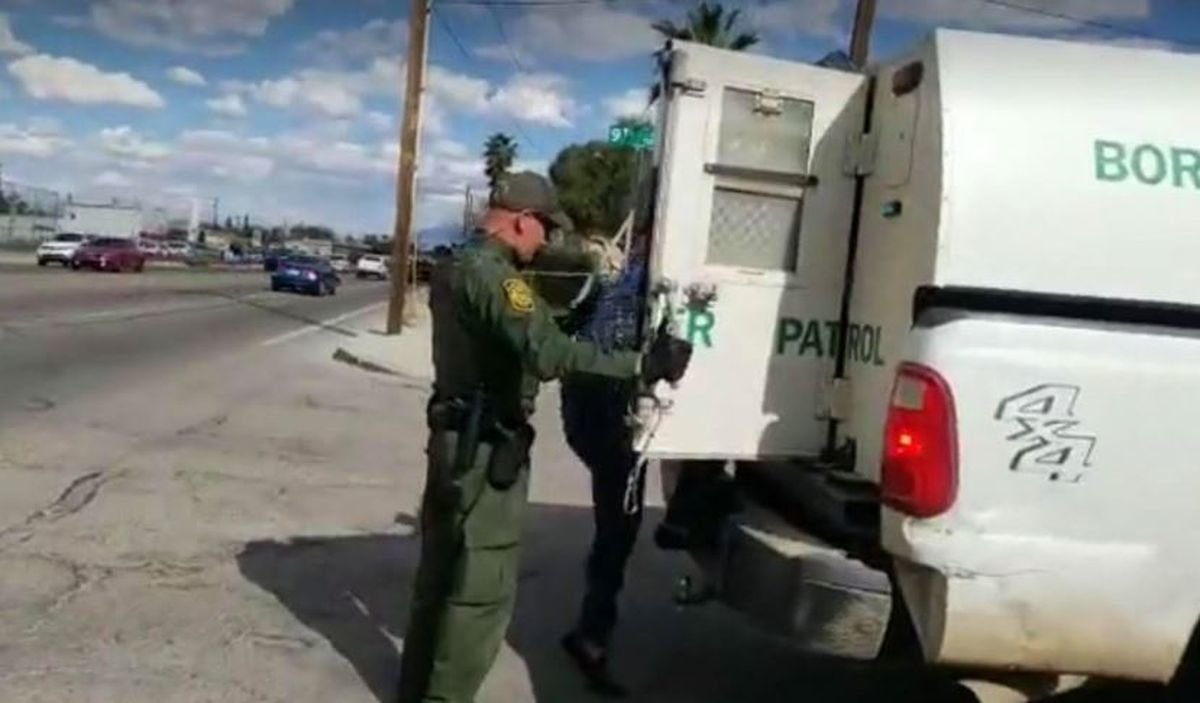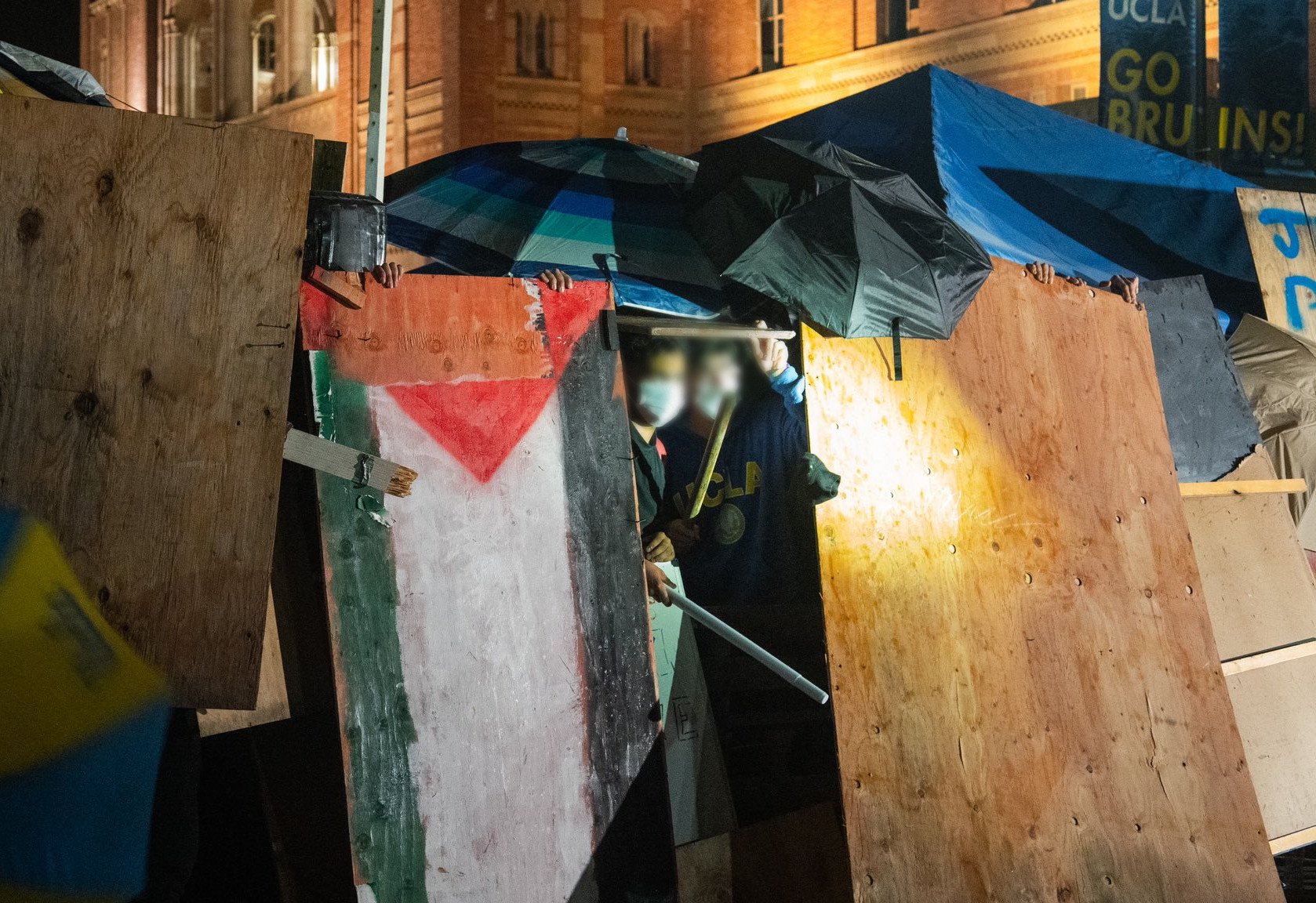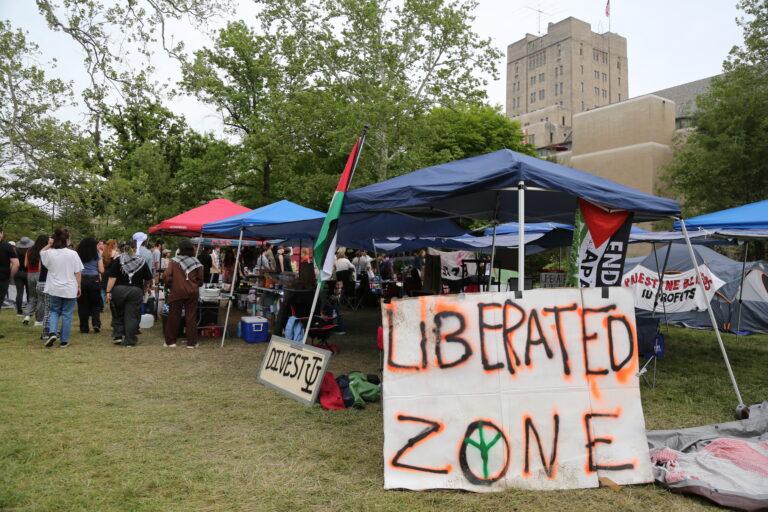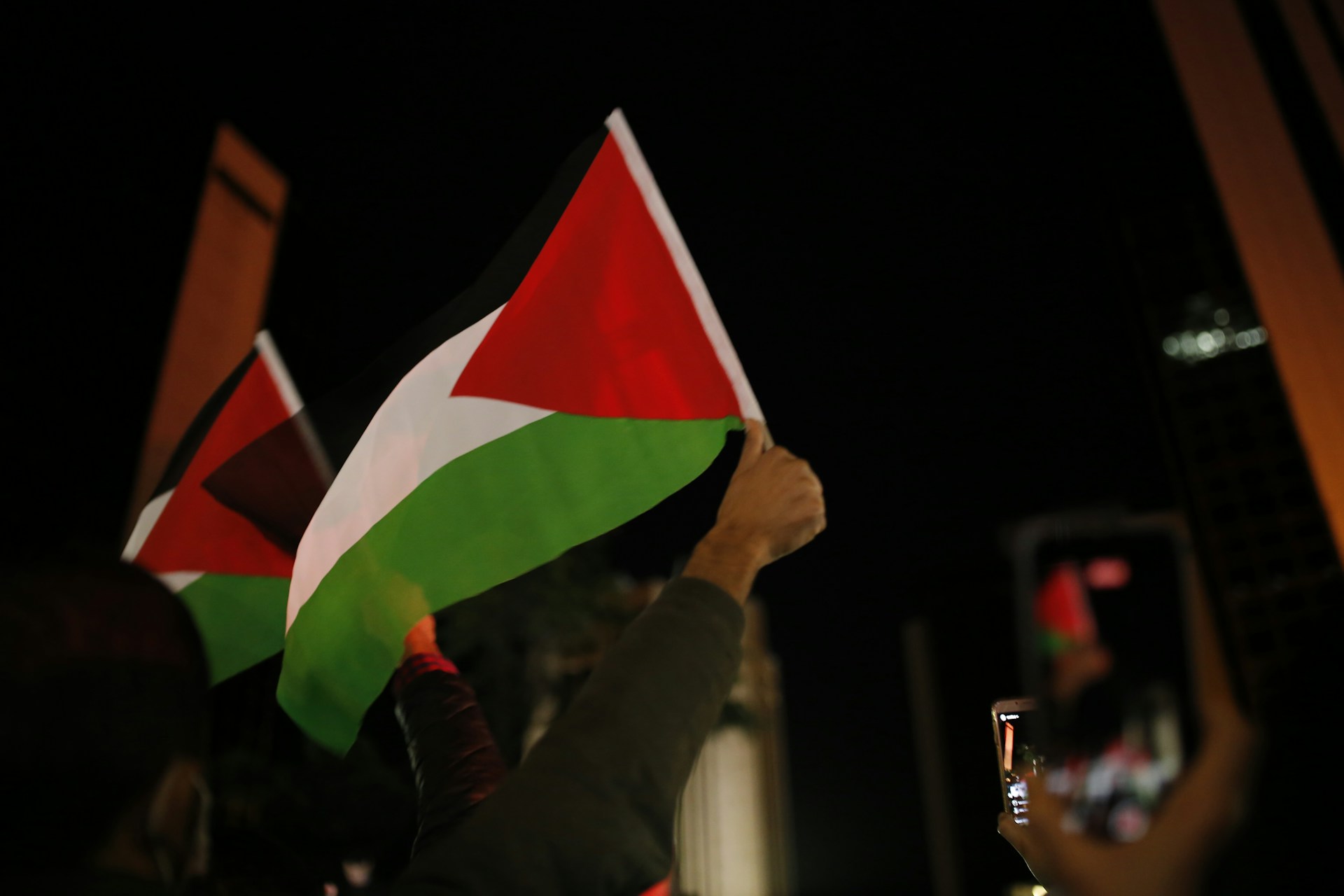Filed under: Analysis, Anarchist Movement, Immigration, Southwest
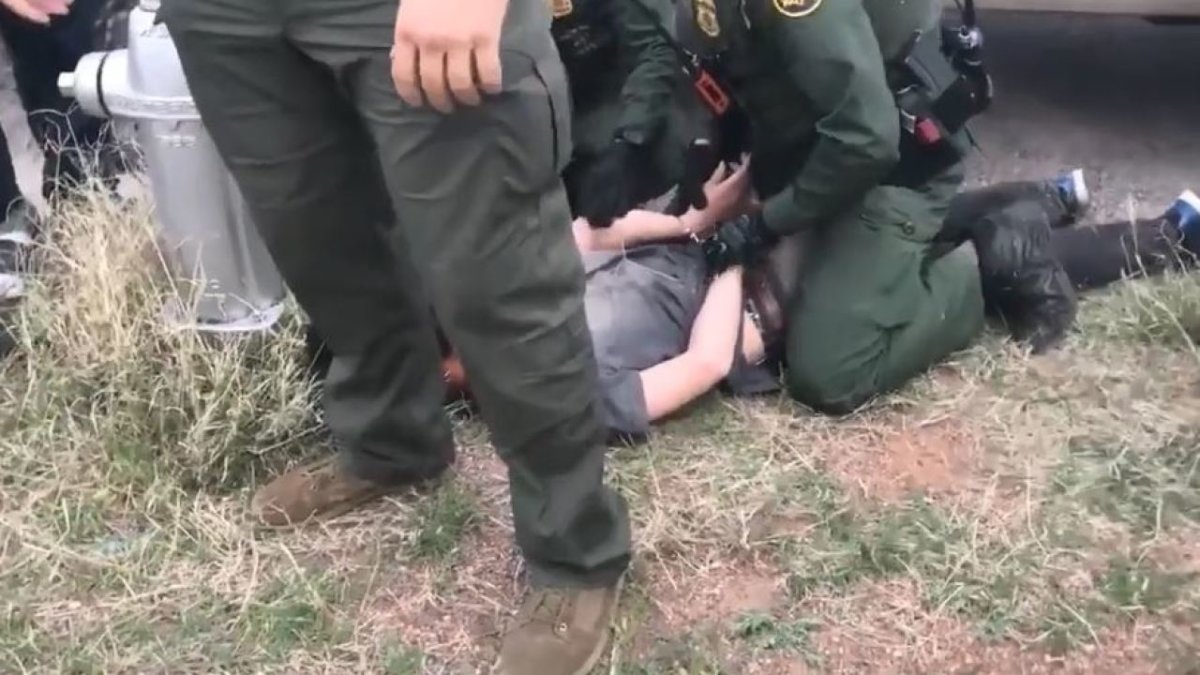
In the midst of an ongoing national debate about the jailing of undocumented minors and the separation of immigrant families, a Tucson family was detained and separated by Border Patrol on March 19, 2019.
Glenda de la Vega Fernandez, Jesús Antonio Torres, and Dariana Torres de la Vega, their 12-year-old daughter, were stopped for having ‘overly tinted windows.’ Arizona Highway Patrol called Border Patrol and within minutes the entire family was detained. Multiple law enforcement agencies arrived on the scene, including the Pima County Sheriff’s Office and the Tucson Police Department.
Despite protests from close relatives on the scene who were ready to take guardianship of the child, Border Patrol placed her in the caged back of the vehicle. Border Patrol also refused to allow community members to offer the detained family food and water.
Someone who had arrived on the scene after receiving notification of the stop from the Tucson Community Rapid Response Team crawled under the Border Patrol truck to prevent it from leaving with the family inside. This action temporarily prevented Border Patrol from transporting the family to a holding facility, but before the growing crowd at the traffic stop could take further action, BP agents pulled the rapid responder from under the truck and arrested him. He was held overnight in Border Patrol custody before being released the next day without charges.
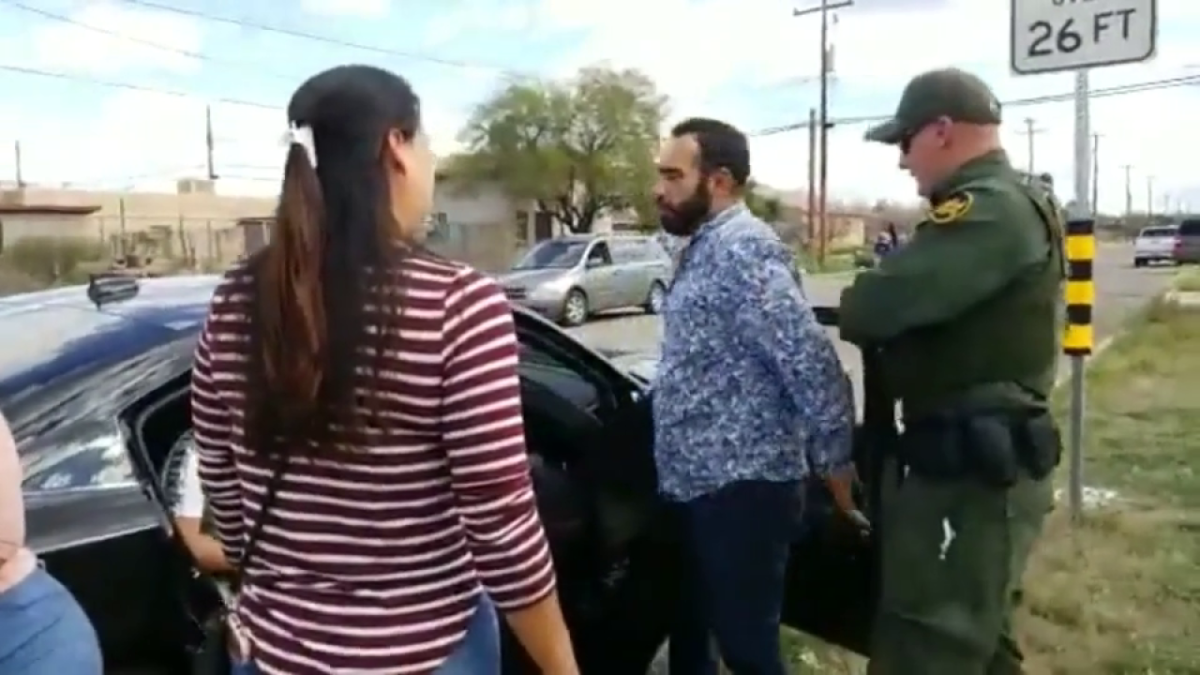 After two nights at Tucson Border Patrol Headquarters, the family was transferred to a Tucson ICE field office. Glenda said they were repeatedly assured by Border Patrol agents that they would be released together. Yet ten minutes after arranging for the family to be picked up, Glenda and Dariana watched as ICE agents separated them from Jesús. “They cuffed his hands, his waist, and his feet,” Glenda said. After pleading with the agents, the mother and daughter were allowed a brief moment with Jesús before he was deported. Glenda, Jesus, and Dariana had been living in Tucson together for over 11 years with their other two children aged 10 and 6.
After two nights at Tucson Border Patrol Headquarters, the family was transferred to a Tucson ICE field office. Glenda said they were repeatedly assured by Border Patrol agents that they would be released together. Yet ten minutes after arranging for the family to be picked up, Glenda and Dariana watched as ICE agents separated them from Jesús. “They cuffed his hands, his waist, and his feet,” Glenda said. After pleading with the agents, the mother and daughter were allowed a brief moment with Jesús before he was deported. Glenda, Jesus, and Dariana had been living in Tucson together for over 11 years with their other two children aged 10 and 6.
Despite false claims from Border Patrol that Dariana remained with her parents while in custody, Glenda and Dariana say that Dariana was held in a separate cell with 16 other female minors. The cell was so overcrowded that some of the girls had to sleep in the bathroom attached to the room. This comes as the Tucson Sector Border Patrol currently faces a class action lawsuit from plaintiffs who are charging that the dirty, overcrowded, and freezing conditions at CBP Headquarters in Tucson violate constitutional law and CBP’s own policies.
***
What lessons can we take from this latest attack on the undocumented community?
This is likely obvious to the point of redundant by now, but this case shows us once again that the system of deportation is brutal and must be stopped. A family has been torn apart and pulled from a community that they’ve been part of for over a decade for driving a car with tinted windows. A child has been taken into law enforcement custody, lied to, separated from her mother, and forced to sleep curled up next to a toilet in an overcrowded cell. No pretext is too small for the racially targeted violence of the immigration system, no cruelty too unseemly.
Collaboration between local, state, and federal law enforcement agencies is central to the day-to-day functioning of the detention and deportation systems. The stop was initiated by an Arizona State Trooper who later called Border Patrol. As a crowd gathered to try to prevent the detention of the family, support from the Pima County Sheriff’s Department and the Tucson Police Department arrived. More or less every active law enforcement agency with jurisdiction in Tucson worked together to ensure that BP be able to detain this family.
In the wake of the incident, Tucson Police Chief Chris Magnus wrote an op-ed absolving the Tucson Police Department of guilt for the separation of the family: “TPD officers will not do BP’s job… however, our officers will respond to urgent requests for assistance, calls for emergency help or calls where it’s necessary for us to enforce state law. This may involve addressing incidents where persons are blocking a law enforcement vehicle, interfering with a lawful arrest or trespassing on private property. This is a basic expectation of police officers in every city across the country, and one we are duty bound to uphold.”
Whenever we effectively intervene in the functioning of BP or ICE, local law enforcement agencies will arrive to back them up. If the rhetoric of Tucson’s top cop doesn’t make it abundantly clear, we need look no further than the police departments of so-called “sanctuary cities” Portland and San Francisco to prove this point. In each case, despite their progressive talk, the local cops violently evicted the encampments blockading ICE offices last summer. In this sense, Magnus’s op-ed boldly states an important truth: while individual cops—even chiefs of police—may not themselves agree that it is good policy to have families routinely torn from their loved ones by armed federal agents, they understand themselves as “duty bound” to use state violence to ensure that this can continue to happen. ¡La migra, la policía, la misma porquería!
We need to think strategically about how to intensify and expand our struggles. On one hand, the actions of the rapid responders who arrived at the scene on the 19th obstructed the work of Border Patrol, transforming an otherwise routine act into a potentially uncontrollable situation—a liability they had to rely on support from other law enforcement agencies to help them manage. Further, through the extensive media and signal boosting work done in the aftermath, the normally invisible attacks on the undocumented community have been made public, garnering significant attention. Now, there has been a large scale fundraising campaign for the separated family raising over $10,000, renewed discussion of a “sanctuary city” initiative in local government, and a pro-bono lawyer secured to help Jesús pursue routes to return to his family now that he has been deported.
That said, it’s difficult to view this as any kind of victory. Our goal cannot be to bring attention to deportations, it must be to prevent them from happening at all. When Border Patrol or ICE are called in the city, we need numbers and we need them fast. Oftentimes when the rapid response network gets activated, only a few people arrive before BP is already pulling away with undocumented folks in their custody. Determine if the city you live in has a rapid response network right now, and get signed up to receive notifications. If you’re in a city without a rapid response network, create one! Feel free to get in touch with folks at [email protected] who would be happy to explain how they got things off the ground.
In addition to bigger crowds at Border Patrol stops, we also need to arrive mentally and physically prepared to act decisively. Consider what risks you might be willing to take to intervene, and discuss with people you trust what sort of actions you might want to take together. Had there been more than one person who crawled under the car at the stop on the 19th, it may have bought enough time for the crowd to have grown to a size where they could have surrounded the vehicle. If rapid responders had linked arms early on, it may have been more difficult for the police to force them out of the road. What might have happened if rapid responders had been prepared with implements to lock themselves to BP cars? In the past, local cops have attacked crowds with pepper spray when law enforcement vehicles get surrounded. Should we come ready to rapid response calls with work goggles to protect our eyes? Let’s not simply ask these questions, we need to start answering them and arriving prepared.
Finally, let’s think realistically about the risk incurred by taking action in a situation like the one described above. As always, the level of risk one faces changes drastically with one’s position within myriad hierarchies of identity-based oppression. Attempting to intervene in a BP stop is, of course, particularly risky for those without citizenship status. For those of us who are U.S. citizens, however, perhaps this case shows us that the risks are not so high as those in power would like us to imagine they are. The rapid responder who crawled under the Border Patrol vehicle was threatened with an “impeding a federal agent” charge, but ultimately released with no criminal charges whatsoever. The sole negative consequence for his action was being held in BP custody overnight.
It would be simplistic to assume that this will inevitably be the outcome of interventions in BP or ICE stops, but let’s be clear: we live in a time when there is broad community support available—including, in many cases, free legal representation—for anti-border actions. Let’s use this support while we have it, recognizing that the risks we run by taking action are minimal in comparison to those faced daily by those without documents. Or, as Jessica Rodriguez of the Southside Worker’s Center said in a press conference after the family’s separation, “everyone who’s out there wondering what else they can do, I ask you to use your bodies and your privilege to make sure that these systems don’t continue deporting families.”


